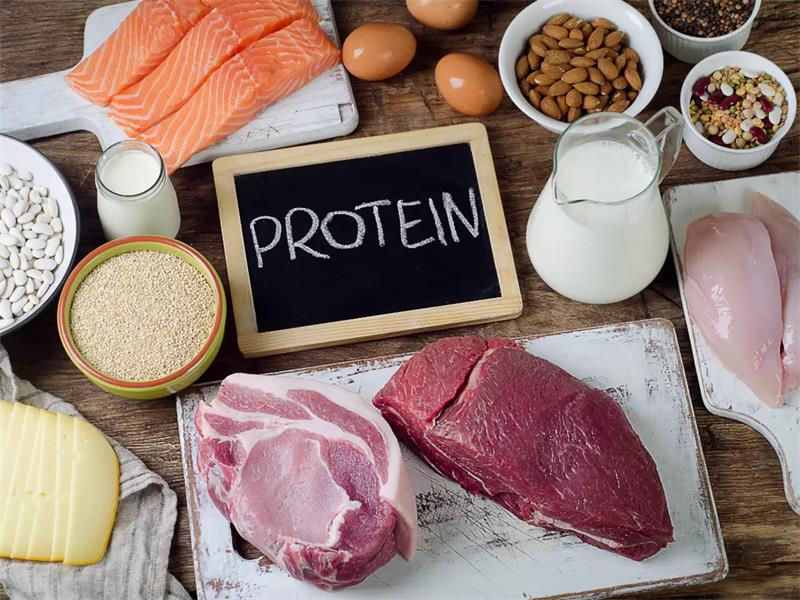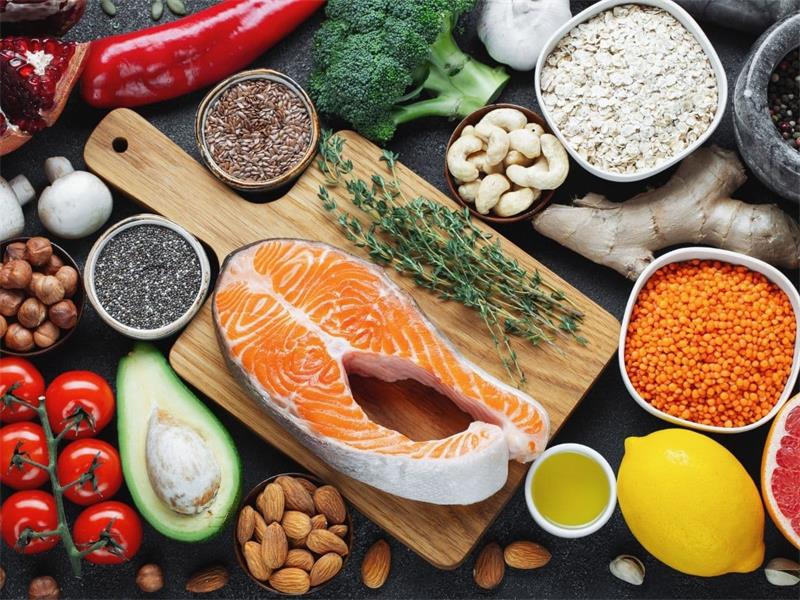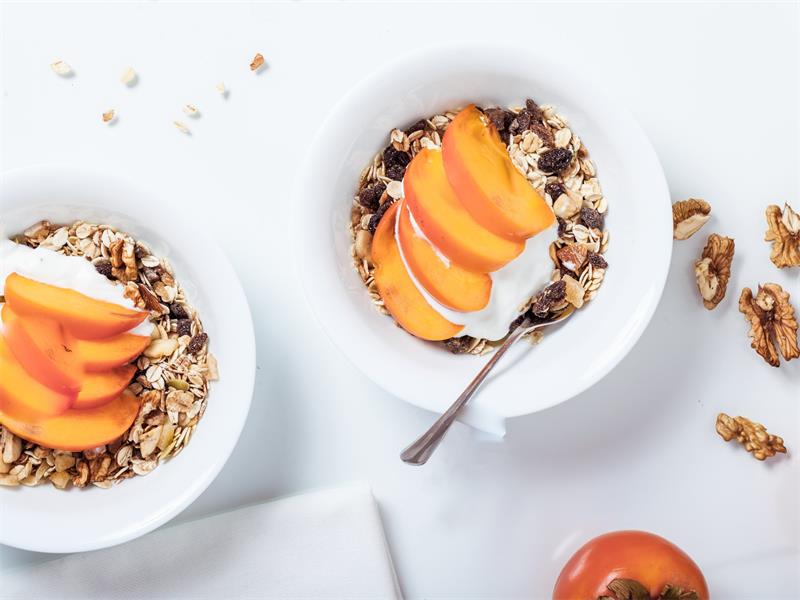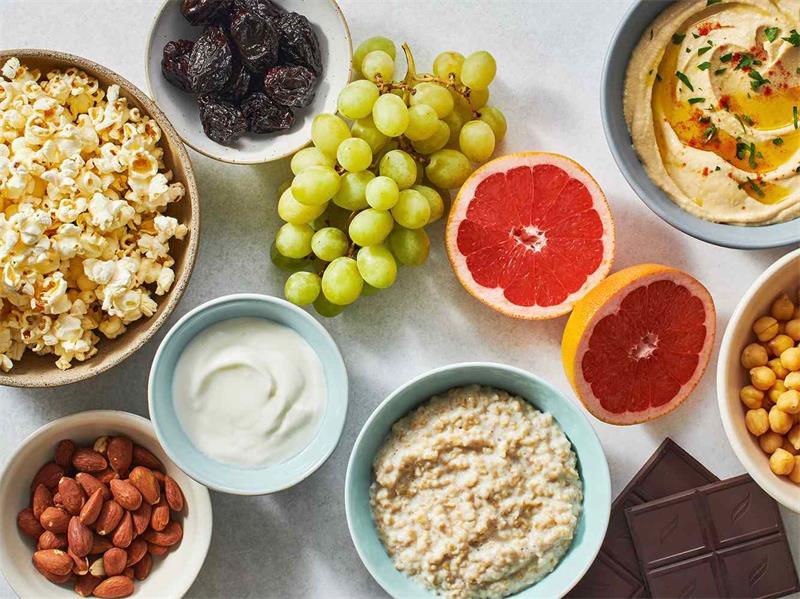Contents
- 1 The Importance of Protein in Our Diet
- 2 How much protein do you need?
- 3 Best Sources of Protein
- 4 Protein Supplements: Do You Need Them?
- 5 Types of Protein Supplements: Whey, Casein, and Plant-Based Powders
- 6 Potential Risks and Side Effects
- 7 Rarely Known Facts About Protein
- 8 Interesting Tidbits About the History and Cultural Significance of Certain Proteins
- 9 Conclusion
The Importance of Protein in Our Diet
Protein is an essential macronutrient that our body needs to function properly. It is involved in building and repairing tissues, making enzymes and hormones, and maintaining a healthy immune system.
Without enough protein in our diet, we can become prone to infections, suffer from muscle weakness, and even experience stunted growth in children. One of the main benefits of protein is that it helps us feel fuller for longer periods of time.
This satiety effect can help with weight loss or maintenance by reducing overall calorie intake throughout the day. Additionally, protein helps preserve lean muscle mass during weight loss which can be a critical factor for overall health.
Another benefit of consuming adequate amounts of protein is improved bone health. Studies have shown that higher protein diets are associated with increased bone mineral density which reduces the risk of osteoporosis.
It’s important to note that not all proteins are created equal – some sources are better than others due to their nutrient content, digestibility rates and environmental impact. Understanding these differences can help you make informed decisions about what foods to include in your diet for optimal health benefits.
How much protein do you need?
Protein is an essential macronutrient that plays a vital role in building and repairing tissues, supporting the immune system, and producing enzymes and hormones. The recommended daily intake of protein varies depending on your age, sex, weight, physical activity level, and overall health goals.
The Dietary Reference Intake (DRI) recommends that adults should consume at least 0.36 grams of protein per pound of body weight (0.8 grams per kilogram) daily. For example, if you weigh 150 pounds, you should aim for at least 54 grams of protein per day.
However, some studies suggest that active individuals or people trying to build muscle may need more protein. If you’re unsure how much protein you need to consume daily based on your lifestyle or fitness goals, talk to a registered dietitian or healthcare provider who can help calculate your specific needs.
Recommendations for different age groups and lifestyles
Children and teenagers require slightly more protein to support growth spurts and development than adults. According to the DRI guidelines:
– Infants 0-6 months old: 9.1 grams/day – Infants 7-12 months old: 11 grams/day
– Children ages 1–3: 13 grams/day – Children ages 4–8: 19 grams/day
– Children ages 9–13: 34 grams/day – Teenage boys ages14–18: up to52 grams/day
– Teenage girls ages 14–18: up to 46 grams/day Pregnant women are recommended to increase their daily protein intake by approximately 25 grams/day compared to non-pregnant women.
How to calculate your personal protein needs based on body weight
To determine your personal daily recommended value of dietary proteins use the following calculation; – Multiply your weight in pounds by 0.36, or your weight in kilograms by 0.8 – If you are an athlete or physically active, you may need to increase your daily protein intake to between 0.5 and 0.8 grams of protein per pound of body weight (1.2–1.7 grams/kg)
– Keep in mind that consuming more protein than what your body needs will not lead to greater muscle gains and may cause negative health effects such as kidney damage or heart disease. Overall, it is important to meet your daily protein intake requirements to support the optimal functioning of the body systems and maintain good health outcomes.
Best Sources of Protein
Animal-Based Proteins: Meat, Fish, and Dairy
When it comes to getting enough protein, animal-based sources are often the first that come to mind. Meat, fish, and dairy products are all rich in this essential nutrient.
Some popular meat options include beef, pork, chicken, and turkey. Fish such as salmon or tuna are also great sources of protein.
Dairy products like milk, cheese, and yogurt are also excellent options. One thing to keep in mind when consuming animal-based proteins is the quality of the source.
Opting for grass-fed and pasture-raised meat can provide more nutrients than conventionally raised options. Additionally, consuming fatty fish like salmon can provide a good source of omega-3 fatty acids which have numerous health benefits.
Plant-Based Proteins: Beans, Nuts, and Tofu
For those who prefer a plant-based diet or want to incorporate more vegetarian meals into their routine, there is no shortage of options for getting enough protein. Beans such as lentils or chickpeas provide a good source that can be easily added to soups or stews for added nutrition.
Nuts like almonds or peanuts can make a great snack loaded with protein as well as healthy fats. Tofu is another option that is quite versatile in recipes from stir-fries to scrambles.
One thing to keep in mind when consuming plant-based proteins is making sure you get all the necessary amino acids that make up complete proteins. It may be necessary to combine different sources such as beans and rice or tofu with vegetables in order to create a complete source of protein.
Comparison between Different Sources
Comparing different sources of protein can help you decide which ones may be best for your dietary needs and preferences based on nutrient content and health benefits. Animal-based proteins tend to be high in protein but also may come with more saturated fats and cholesterol.
Plant-based proteins can provide a variety of other nutrients such as fiber and antioxidants. When comparing different sources within each category, certain options may stand out.
For example, salmon contains more omega-3 fatty acids than other fish while quinoa is considered a complete plant-based protein source. It’s important to consider the whole nutritional content of each option when deciding which ones to incorporate into your diet for optimal health.
Protein Supplements: Do You Need Them?
If you’re someone who struggles to meet their daily protein requirements through whole foods, protein supplements can be a convenient way to ensure that you’re getting enough. Protein powders are particularly popular among athletes and fitness enthusiasts who want to build muscle and recover faster after workouts.
There are also protein supplements for vegans and vegetarians who may have trouble finding enough plant-based sources of complete protein. However, not everyone needs a protein supplement.
If you consume enough protein-rich foods throughout the day, you may be getting all the nutrients your body needs without needing a supplement. In fact, excess intake of certain types of protein supplements can lead to potential health risks.
Types of Protein Supplements: Whey, Casein, and Plant-Based Powders
The most common types of protein supplements include whey, casein, and plant-based powders. Whey and casein are derived from cow’s milk while plant-based powders come from sources like pea, soy, or brown rice.
Whey is the most popular type of protein supplement due to its high biological value – meaning it contains all the essential amino acids your body needs to build muscle – and a fast digestion rate. Casein has a slower digestion rate than whey which makes it ideal for consuming before bed when your body is in a fasting state.
Plant-based powders have become increasingly popular in recent years as more people turn towards veganism or simply want to incorporate more plant-based foods into their diets. These proteins can be just as effective as animal-derived sources if consumed correctly.
Potential Risks and Side Effects
While high-quality protein supplements can be beneficial for some people, there are potential risks associated with overconsumption or using low-quality products. Some possible side effects include digestive issues like bloating or diarrhea if too much is consumed at once.
Additionally, certain protein powders may contain added ingredients like sugar or artificial sweeteners that can be harmful to your health if consumed excessively. It’s also important to note that protein supplements are not a magic bullet for building muscle or losing weight.
They should be used in conjunction with a healthy diet and exercise routine for optimal results. If you’re considering using a protein supplement, talk to your healthcare provider or a registered dietitian to determine if it’s right for you and what type of protein supplement is best for your needs.
Rarely Known Facts About Protein
Protein is crucial for our bodies, but there are some fascinating facts about this macronutrient that many people are unaware of. Did you know that insects are a rich source of protein?
Insects like crickets, locusts, and mealworms contain high-quality protein and essential amino acids. In fact, cricket flour is becoming increasingly popular among health enthusiasts due to its high protein content and eco-friendliness.
Algae is another unexpected source of protein. Spirulina, a type of blue-green algae, has a higher percentage of complete protein than beef or soybeans.
Additionally, it’s packed with antioxidants and other nutrients like iron and vitamin B12. Protein quality can also vary depending on the source.
For example, gelatin is a form of animal collagen that has been used in cooking for centuries. However, despite being high in protein content, it’s not considered a complete protein because it lacks certain essential amino acids.
Interesting Tidbits About the History and Cultural Significance of Certain Proteins
Proteins have played an important role in human history and culture for thousands of years. For instance, quinoa was once considered the “gold” of the Incas due to its high nutritional value and sacredness to their religious beliefs.
In Japan, raw fish has long been an important part of traditional cuisine. Sushi is perhaps the most well-known dish made from raw fish; however, sashimi – thin slices of raw fish served without rice – was actually consumed before sushi became popular.
In some cultures such as India and Ethiopia, lentils have been a staple food for centuries due to their high nutritional value and affordability. Lentils contain 25% more protein than rice or wheat flour which makes them an excellent source for vegetarians who may struggle to find enough sources outside meat to meet their daily protein requirements.
As you can see, protein has a rich history and cultural significance in various parts of the world. Exploring new sources of protein beyond the usual meat, fish, and dairy can be exciting and nutritious.
Conclusion
Protein is one of the most important nutrients in our diet, playing a crucial role in building and repairing tissues, maintaining muscle mass, and supporting a healthy immune system. It’s essential for people of all ages and lifestyles to consume adequate amounts of protein every day to ensure optimal health. Failing to do so can lead to a range of health problems, including muscle wasting, weakened bones, and an increased risk of infections.
Final thoughts on incorporating a variety of high-quality sources into your meals
When it comes to getting enough protein in your diet, it’s important to focus on variety and quality. Different types of proteins offer different nutrients that our body needs, so try incorporating a variety of animal-based and plant-based proteins into your meals.
Lean meats like chicken or turkey are great sources of high-quality animal protein while plant-based options like lentils or quinoa are packed with vitamins and minerals. Additionally, don’t be afraid to experiment with new sources like soy products or insect-based proteins which offer unique nutritional benefits.
However, if you choose to get your protein fix, always prioritize quality over quantity by selecting whole food options over processed or packaged foods. Getting enough protein is essential for optimal health.
By calculating your daily needs based on your body weight and lifestyle factors, you can adjust your diet accordingly to ensure that you’re meeting these requirements. Focusing on high-quality sources while prioritizing variety will help you reap the benefits that this vital nutrient has to offer!













